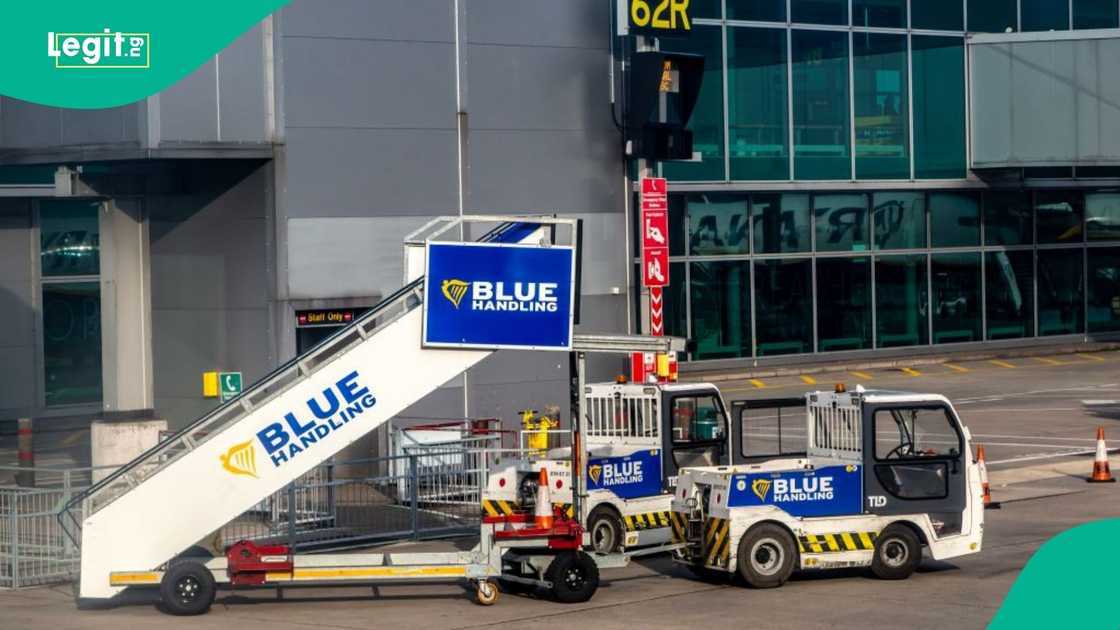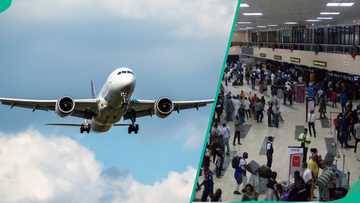Airlines Spend Heavily on Aircraft Towing, as Aero Bridges Fail to Arrive From China
- In 2014, the Federal Airport Authority of Nigeria (FAAN) procured 10 aero bridges from China to be used in Nigerian airports
- Ten years later, the aero bridges are yet to arrive in Nigeria, and airlines still have to patronise ground handling companies for towing services
- A report shows that international airlines in Nigeria spend billions of naira on these services
Legit.ng journalist Ruth Okwumbu-Imafidon has over a decade of experience in business reporting across digital and mainstream media.
Due to the inability of the Federal Airport Authority of Nigeria (FAAN) to import the already procured aero bridges, airlines are spending billions of naira annually on aircraft towing.
A report shows that international airlines operating in Nigeria spend as much as N25 billion annually for these services.
The aero bridges are supposed to align with the aircraft doors so that airline passengers can disembark with ease, but in Nigeria, airlines have to pay the ground handling companies to tow their aircraft to aero bridges where passengers can disembark.

Source: UGC
The process not only costs more money, but also delays passengers by up to 20 minutes after landing.
Aero bridges fail to arrive from China
According to the PUNCH news, 28 aero bridges have been procured from China since 2014 but are yet to arrive Nigeria.
The aero bridge, also called air bridge or jetway, is described as a telescoping door that connects the aircraft to an airport terminal, allowing for secure boarding and disembarking.
Data from FAAN shows that about 990 landings and takeoffs occur at the international wings of the Murtala Muhammed Airport, Lagos, monthly, with ground handling companies charging $1,350 for a big aircraft, and $673 for a small aircraft.
This comes to about $16.04 million that the airlines spend on aircraft towing annually.
Ground handling companies move to hike prices
Recall that the ground handling companies recently complained that they would soon go out of business if the government did not offer them duty waivers and concessional loans.
The operators noted that they offer their range of services to the airlines at very low margins to help the aviation sector, and need some collaboration from the government to keep going.
A recent attempt by the ground handling operators to raise their charges met with stiff resistance from the airlines.
The ground operators noted that the new charges only bring the charges in Nigeria into the same range as the charges in other countries.

Source: Getty Images
The airlines refused to accept the charges, insisting that it would further complicate their business challenges as they are already battling with increased fuel prices among others.
Airlines share how much they spend on flights
In related news, Air Peace has disclosed that the cost of operating a one-hour flight surpasses 14 million in Nigeria.
The company’s Chief Operating Officer (COO), Oluwatosin Olajide, broke down the airline’s expenses on individual flights within Nigeria.
She disclosed that aircraft, crew, maintenance, and insurance (ACMI) for Air Peace gulps about $4,000 for an hour’s flight.
PAY ATTENTION: Сheck out news that is picked exactly for YOU ➡️ find the “Recommended for you” block on the home page and enjoy!
Source: Legit.ng





